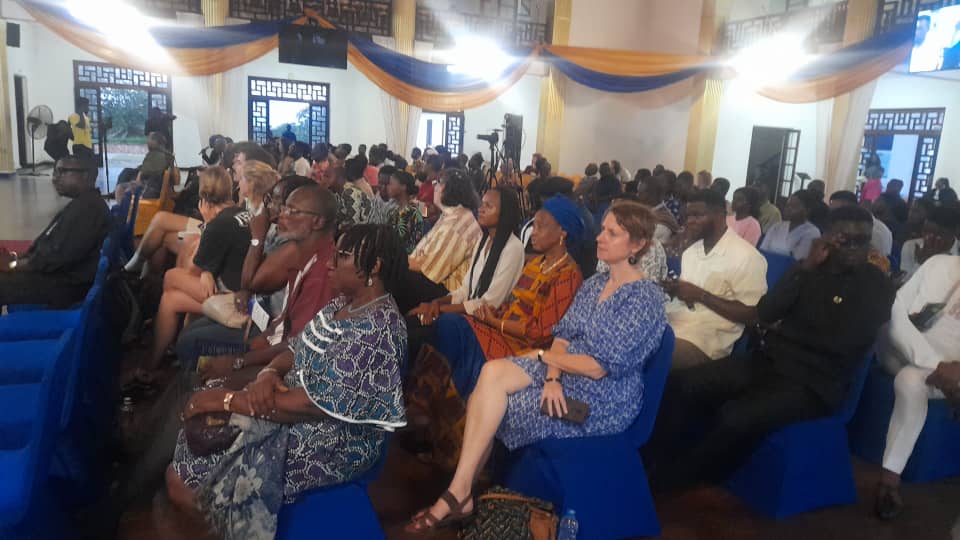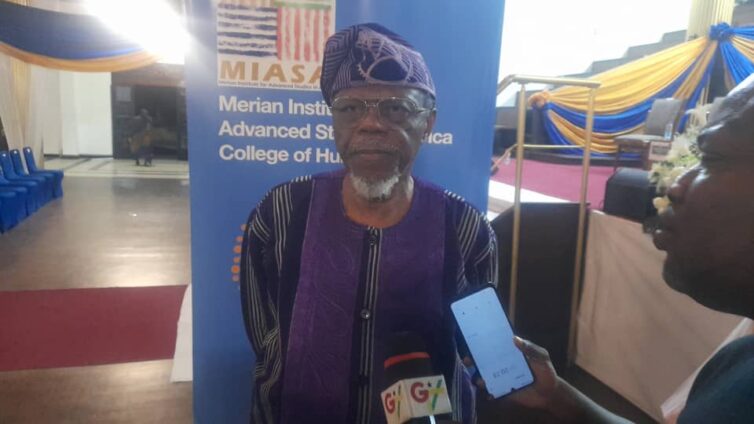Professor Toyin Falola of the University of Texas at Austin is advocating for the inclusion of ancestral knowledge in Africa's educational systems and various facets of life.
According to him, this is the best way for Africa to progress and develop—by understanding the past and using it to inform future decisions.
He made these comments at the 2024 Amo lecture titled "Ancestral Knowledge for Contemporary Transformation" on October 15 at the University of Ghana's Great Hall.
Professor Falola said that real progress can only be made when the past is acknowledged and integrated into the present.
“You cannot talk about the future and erase the past,” he said.
He further explained that incorporating cultural knowledge into education should not be limited to schools alone but should extend to other institutions.
“I would integrate cultural knowledge into the education system and move it beyond schools into other areas of society so that whatever the state does integrates culture into its activities,” he stated.
Professor Falola argued that discarding African knowledge under the guise of it being fetish or witchcraft has caused the continent to lose access to valuable archival knowledge, which could be utilised to address present-day challenges.
He noted that many current systems and philosophies had their origins in ancestral practices but have been lost due to poor archival efforts.
On the back of this, he suggested restructuring academic departments to reflect African heritage.

“Instead of a department of history, why not a department of kingship? Instead of a department of religious studies, why not a department of divinity?” he proposed.
While acknowledging the existence of universities in Africa, he argued that they do not function as true "African universities." This, he believes, has created a significant gap between African practices and academic work.
Professor Falola called for a synergy between African culture and technology to generate authentic knowledge, rather than maintaining the current divide.
The professor stressed the importance of conducting extensive research into African knowledge systems and documenting them in books to prevent the loss of valuable information. He added that many concepts, such as feminism, existed in African societies long before they were recognised in post-colonial discourse, but the absence of proper archives means these ideas are often overlooked.
Professor Falola also addressed the misconceptions surrounding African spirituality, stating that what some refer to as "juju" and "witchcraft" are, in fact, earlier forms of artificial intelligence (AI).
He pointed out that while many young Africans have tried to draw on ancestral traditions in crafts like Nollywood films and Afrobeats, more support is needed to empower them.
He called on African universities to establish “incubation centres” where young innovators can develop ideas through open competition, with the best ones receiving prizes and industry support to secure funding.
Latest Stories
-
Election 2024: EC destroys defective ballot papers for Ahafo and Volta regions
7 mins -
2024 Election: I am sad EC disqualified me, but I endorse CPP’s candidate – PNP’s Nabla
34 mins -
I want to build a modern, inclusive country anchored by systems and data – Bawumia to CSOs
35 mins -
Miss Health Ghana 2024: Kujori Esther Cachana crowned new Health Ambassador
42 mins -
Livestream: The manifesto debate on WASH and climate change
49 mins -
Alan Kyerematen saddened by NDC and NPP’s neglect of Krofrom Market in the Ashanti Region
52 mins -
CSIR Executive Director urges farmers to adopt technology for improved farming
1 hour -
Football Impact Africa’s Ghetto Love Initiative inspires change in Teshie
1 hour -
Peter Toobu calls for tighter border security over uncovered weapons at Tema Port
1 hour -
Gov’t has failed its commitment to IPPs – Ablakwa
1 hour -
Sell Chrome to end search monopoly, Google told
2 hours -
KATH to install seven new dialysis machines by end of November
2 hours -
Walewale: Police confiscate 37 bags of cocoa beans suspected of being smuggled out of Ghana
2 hours -
‘Expired’ Rice Scandal: FDA confirms rice was safe for consumption after rigorous lab tests
2 hours -
Many women have experienced intimate partner violence – Angela Dwamena Aboagye
2 hours

